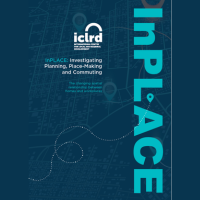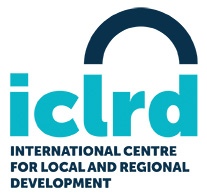October 9 2024 – A comprehensive study conducted by the International Centre for Local and Regional Development (ICLRD) sheds new light on the growing phenomenon of commuting from rural settlements to urban centres.
The InPLACE (Investigating Planning, Place-Making, and Commuting) report, which studied seven rural towns in Ireland and Northern Ireland, along with two in Maryland, USA, reveals both the opportunities and challenges associated with long-distance commuting.

Key Findings:
- Economic Benefits: Commuting provides rural residents access to higher-paying jobs in urban centres, leading to increased household incomes and economic spillover into local businesses. This has helped revitalize rural towns, bringing new economic opportunities and demographic renewal.
- Strain on Local Infrastructure: The rapid population growth driven by commuting has placed significant pressure on housing, schools, healthcare, and transportation networks. Many rural towns lack the infrastructure to handle the increasing population, leading to overcrowding and traffic congestion.
- Environmental and Health Impacts: Commuting, particularly by car, is contributing to rising greenhouse gas emissions and air pollution. Additionally, long commutes are associated with increased stress and negative health outcomes, including mental fatigue and cardiovascular risks.
- Community Engagement: While high levels of commuting could adversely impact community engagement, weakening social cohesion and social capital in rural settlements, this is not the situation across the case study towns. The rise of hybrid and remote working models offers further opportunities for commuters to engage with their local communities.
- Housing Affordability: The geography of housing supply and price is a fundamental determinant of commuting patterns; with commuting driving-up housing prices in many rural settlements, making it harder for long-term residents and lower-income families to afford housing. Key challenge remains in how to meet rural housing needs given current market conditions and ongoing deficiencies in water supply and wastewater treatment capacity.
Policy Implications:
The report calls for integrated policies that address affordable housing, public transportation, and sustainable development in rural areas. Investments in infrastructure and support for remote working can help mitigate the negative impacts of commuting and ensure the long-term sustainability of rural communities.
“Our research highlights the complex relationship between commuting and rural development. While commuting has brought economic benefits, it also poses significant challenges that need to be managed carefully. Supporting remote work and improving local infrastructure are key steps in creating sustainable rural communities,” said Prof. Des McCafferty of Mary Immaculate College and overall Project Co-ordinator of the InPLACE study on behalf of ICLRD.
Ms. Caroline Creamer, Director of ICLRD said “Commuting is an increasingly diverse and varied phenomenon that has undergone major changes in recent times. From a policy perspective, the research findings clearly demonstrate that there is no typical commuter settlement and hence there cannot be a ‘one size fits all’ policy response to the impacts of commuting on place”.
The InPLACE report offers valuable insights for policymakers, planners, and local governments, as they navigate the future of commuting and its impact on rural life.
For more information, access the full report.
About ICLRD
The International Centre for Local and Regional Development (ICLRD) is a
leading research institute focused on spatial planning, community development,
and regional resilience. A registered charity in Northern Ireland, the ICLRD is
a research partnership between Maynooth University, Ulster University and the
University of Maryland, USA, In addition, the ICLRD works closely with
academics and researchers from a range of universities across the island of
Ireland and Europe; working closely with academics from Mary Immaculate
College, University of Limerick and University College Dublin (UCD) on the
InPLACE study. The ICLRD works to
inform policy and practice to improve local and regional outcomes across
Ireland and beyond.
